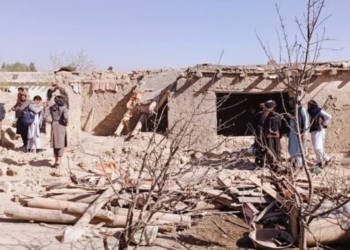India has issued a strong diplomatic protest to China after an Indian woman from Arunachal Pradesh was detained and allegedly harassed for more than 18 hours while transiting through Shanghai Pudong International Airport. The incident has triggered a fresh diplomatic confrontation between the two countries.
According to official sources, Chinese immigration officials refused to accept the woman’s Indian passport, claiming her birthplace — Arunachal Pradesh — was “Chinese territory.” India described the conduct as “ludicrous” and “unacceptable.”
The passenger, Pem Wang Thongdok, was travelling from London to Japan on November 21, with a scheduled three-hour layover in Shanghai. Her routine transit turned into a prolonged ordeal after officials reportedly invalidated her documents solely due to her Arunachal Pradesh origin.
Thongdok detailed her experience on X, writing:
“I was held at Shanghai airport for over 18 hours… They called my Indian passport invalid because my birthplace is Arunachal Pradesh, which they claimed is Chinese territory.”
Her post quickly went viral, sparking nationwide outrage.
India Issues Strong Demarche in Beijing and New Delhi
Acting immediately, New Delhi lodged a strong demarche with the Chinese government in both Beijing and New Delhi. The Indian Consulate in Shanghai also intervened, providing “fullest assistance” to the stranded traveller.
Government sources emphasized that Arunachal Pradesh is an integral part of India, and all its residents are fully entitled to hold and travel on Indian passports. Refusing to recognize this, they said, is baseless, provocative, and completely unacceptable.
Violation of International Civil Aviation Rules
India also noted that China’s actions violated internationally accepted norms under the Chicago and Montreal Conventions, which outline the fair treatment of transit passengers. Officials highlighted that denying a valid passport during a layover breached long-standing global aviation standards.
Impact on Ongoing India–China Normalisation Efforts
New Delhi expressed concern that such incidents create unnecessary complications at a time when both countries are working cautiously to rebuild trust and stability in bilateral relations.
China continues to claim nearly the entire state of Arunachal Pradesh as part of “South Tibet,” a position India has consistently rejected. This territorial dispute frequently surfaces through discriminatory travel practices such as stapled visas or non-recognition of legitimate Indian documents.
Thongdok eventually reached the Indian Consulate after hours of questioning and uncertainty. The incident has renewed calls for stronger protections for Indian travellers and clearer aviation protocols in politically sensitive regions.





























